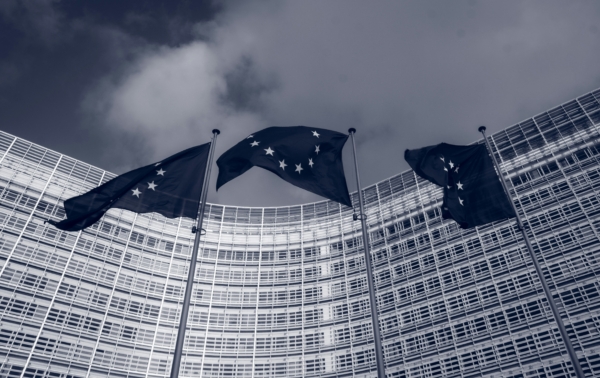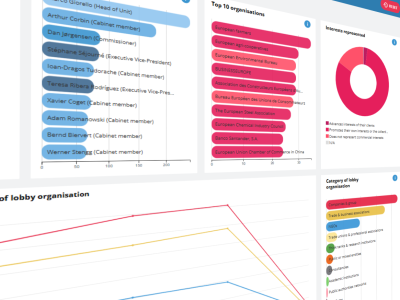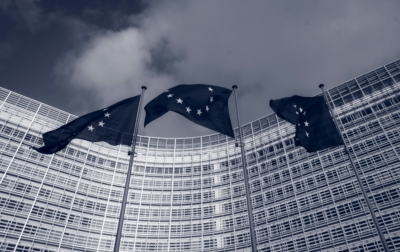The following letter was signed by Transparency International EU and the undersigned organisations. It can be accessed as a PDF file here.
Brussels, 13 November 2023
Dear Minister,
On 15 November, the EU General Affairs Council (GAC) is due to examine the situation of the rule of law, human rights and democracy in Hungary and Poland in the context of the Article 7.1 of the Treaty on European Union (TEU) procedure.
HUNGARY
Our organisations regret that this examination will take the form of a state of play presented by the Commission. We recall that Article 7.1 TEU does not foresee such a format but instead provides for the hearing of the concerned member state. A hearing allows for the state concerned to be directly held accountable by its peers in a way that no presentation by a third party can match. Considering that it was the European Parliament and not the Commission that issued the Article 7.1 TEU reasoned opinion in the case of Hungary, at the very least a state of play by the Parliament would have been more suitable.
We urge the Council to make room for an exchange with the Parliament’s Article 7 Rapporteur on Hungary, and to ensure that the state of play by the Commission allows for a substantive exchange on what is at stake under Article 7.1 TEU, i.e., the ‘clear risk of a serious breach of EU values’ in Hungary.
We also urge the Council to take the opportunity of the state of play by the Commission to insist that there are no grounds for releasing EU funds related to reform of the judiciary. While Hungary has adopted some measures in response to EU requirements, these fall short of what is needed to alleviate all the concerns over the independence and political control of the judiciary. Furthermore, unfreezing funds linked to justice reforms would create a misperception that Hungary is on a positive track of reform, undermining the effectiveness of all other rule of law scrutiny tools, and the credibility of the Article 7 procedure.
Since the Article 7.1 TEU procedure started five years ago, EU institutions have launched related actions against violations of EU norms and values by the Hungarian government, including legal proceedings for infringement of EU law and exceptional conditionality procedures, leading to a suspension of EU funds to Hungary under the Common Provisions Regulation (CPR), the Recovery and Resilience Facility (RFF) and the EU (general) budget Rule of Law Conditionality Regulation.
These latter procedures, which aim to protect the EU budget from misuse, address some of the human rights and rule of law concerns raised in the Article 7.1 TEU reasoned opinion, including systematic violations of the rights of LGBTIQ+ people and migrants, the erosion of media freedom and freedom of association, entrenched corruption by the government and affiliated entities, and state capture of the judiciary. Some are inter-related – for instance the RRF and CPR conditionality have common milestones on judicial reform; all of them are in response to the “systemic threat to the values of Article 2 TEU and clear risk of a serious breach thereof”, as addressed comprehensively by the Article 7.1 TEU procedure.
The reality of this structural attack on the EU’s founding values, was reiterated by the European Parliament in its updated Article 7.1 TEU resolution last year, and its resolution from 1 June this year in which Parliament once again called on the Council to take a vote to determine the existence of a clear risk of a serious breach of the values enshrined in EU treaties and to adopt recommendations under Article 7.1 TEU. Yet, despite it being the only tool to address systemic attacks against EU values in a way that no other procedure can, member states have so far avoided taking concrete action under the Article 7 procedure. The next steps, including a political determination acknowledging the attack on EU values, and political recommendations addressed to Hungary as per Article 7.1 TEU, continue to rest in the hands of the Council.
We call on EU member states to probe the Hungarian government’s commitment to respect, protect and promote EU values, by proceeding to adopt recommendations and/or to hold a vote to determine that there is a clear risk of a serious breach of Article 2 TEU values in Hungary.
To inform member states’ questions, we draw your attention to the updated analysis provided by Hungarian independent civil society experts listed in the Annex.
In view of the discussion with the Commission, we wish to highlight the following:
- Despite relatively comprehensive changes to the justice system presented last May by the Hungarian government, the independence of the judiciary is yet to be restored. Without additional legal provisions and a track record of implementation, it is premature to consider that the changes meet the standards for establishing an independent judiciary demanded by the three procedures: Article 7 TEU, CPR and RFF. Questioning the delivery of judiciary reforms is particularly critical as the Commission is currently assessing progress in the context of the CPR conditionality.
- The changes to the judiciary stand out as the only step taken by the Hungarian government in response to the multiple concerns and rulings issued on rule of law and human rights by European institutions, governments, and courts. The government has adamantly resisted action in other critical areas, including corruption, and has outright refused to address issues concerning the rights of LGBTQ+ individuals and migrants. In this context, it is particularly important to challenge the Hungarian government’s rejection of EU Court of Justice (CJEU) judgements and demand their implementation as an essential prerequisite for any positive assessment by the EU.
- We particularly draw your attention to the fact that neither the 2018 Stop Soros Law that unduly criminalizes NGOs and assistance to asylum seekers, nor the Hungarian legislation on asylum have been repealed despite rulings by the CJEU that they run contrary to EU law. Instead, recent statements by the government – including its announcement of a new “defence of sovereignty” bill that could be used “against left-wing journalists, pseudo-NGOs and dollar politicians” as stated by the leader of Hungary’s Fidesz governing party – point towards an intensification of harassment of independent civil society, and openly reject compliance with the EU’s common asylum policy. Similarly, the Hungarian government is doubling down in its opposition to the EU’s stance on its so-called “Child Protection Act” as exemplified by the most recent dismissal of the director of the National Museum after he failed to enforce a ban on children and adolescents visiting a World Press Photo exhibition featuring LGBTIQ+ content. This law is currently being challenged before the CJEU by the Commission, supported by the Parliament and sixteen member states for violating Article 2 TEU values.
Our organisations reiterate our longstanding call for the Council to make full use of the Article 7.1 TEU procedure to hold the Hungarian government to account for violating EU values and to affirm by a vote its stance in defence of Article 2 TEU.
POLAND
In this phase of political transition, it is critical to continue monitoring the situation of rule of law, fundamental rights and democracy in Poland. We call on you to keep the Article 7 procedure active, as well as other rule of law related procedures, until the government in charge delivers real changes in law and practice.
Yours sincerely,
Amnesty International
Human Rights Watch
International Commission of Jurists
International Federation of Human Rights
Open Society Foundations
Reclaim
Reporters Without Borders
Transparency International EU
Annex
- Hungarian Helsinki Committee, 2 November 2023: “Hungary: No true commitment to restoring the rule of law”
- Hungarian Helsinki Committee, 31 October 2023: “Fundamental deficiencies of the Hungarian judicial reform”
- Háttér Society and Amnesty International Hungary briefing, November 2023: “Hungary: continued backsliding on LGBTQI rights”
- K-Monitor, October 2023: “A year of missed opportunities: Assessment of the implementation of the anti-corruption commitment”
- Hungarian Civil Liberties Union, “The lack of independent control over secret state surveillance – the use of Pegasus in Hungary”
- Amnesty International, “Hungary: The government must provide a meaningful response to the Pegasus scandal”
- Joint civil society submission, May 2023, “Selected recommendations for Hungary in the Article 7(1) TEU procedure”







